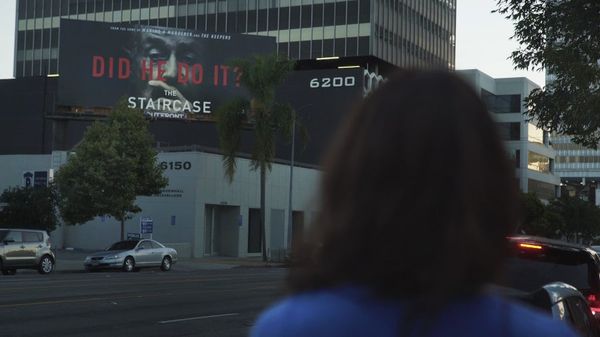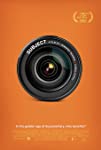Eye For Film >> Movies >> Subject (2022) Film Review
Subject
Reviewed by: Sunil Chauhan

In a few lines, Act Naturally, the song that opens Capturing The Friedmans - one of the documentaries that forms the backbone of Subject - hits on some of the themes this doc about other docs sets out to examine. “They're gonna put me in the movies, they're gonna make a big star out of me,” sings Buck Owens. “They'll make a film about a girl who's sad and lonely and all I gotta do is act naturally.”
Owens was likely not thinking about a documentary when he sung those lines (though ‘movie’ is used interchangeably with ‘documentary’ by some here), that question of fame and loss of privacy, and its after-effects, is at the heart of Subject. The focus here is documentary, though it could equally be any form of media that exposes its participants, forever altering their lives in some way, even if for those watching, it’s just a form of entertainment. But in a period when the documentary market has exploded, Jennifer Tiexiera and Camilla Hall’s Subject arrives at the right time, even if it’s focus is only in part on the true crime sector that streaming audiences are so receptive to.

On that front, Margie Ratliff, whose father was accused of murdering her mother in The Staircase, vouches for the documentary participants who feel the process is exploitative, unfair, renders its subjects powerless, and in the age of streamers like Netflix, are unable to put the histories these shows immortalise in the past. But to Tiexiera and Hall’s credit, there are no easy conclusions to be drawn in Subject. Ratliff might wish she had never been filmed, but others found the experience afforded them opportunities they would not have had otherwise. Equally, how a subject considers their participation can also shift over the years, which reveals something slippery about time, memory and perspective. Films like The Wolfpack (whose Mukunda Angula proves to be in the pro-subject camp) might be small-scale in the broader eco-system of screen media, but for those like Ahmed Hassan from The Square, Subject shows how the glitz of being in an Oscar-nominated documentary isn’t always easy to sustain, and that the thorny comedown to reality that ensues as a result can be painful.
But while Subject works as a catch-up with the stars of some of the most captivating docs of the past 10 to 20 years, it also offers plenty of food for thought. It questions the accepted wisdom that participants shouldn’t be paid for their time - then considers ways in which that can happen without diluting purist doc principles - and wonders if documentary crews could extend to include something like intimacy coordinators – would that radically shift the nature of the form, as well as our understanding of the genre as one purporting to represent reality? It’s also clear that participants often don’t know what impact being in a documentary will have on their lives until after the fact, and that what an onlooker views as exploitation might differ wildly from those in front of the camera. If nothing else, Subject is useful in capturing how varied that experience can be. It doesn’t let the directors behind the films it features have their own say, perhaps as it supposes they have had enough of a platform already, and well, this isn’t their film.
As it hits its stride, Subject hits on questions that, while explored with admirable depth already, could easily be fertile ground for a longer-form project. Should documentary subjects always be in collaboration with directors? Would this result in ‘better’ documentaries? And should we demand the same ethical standard from tabloid docs as from an investigative news doc? Ultimately though, Subject is about how these questions affect those at the centre of these docs. And at a time when docs are booming, Subject asks you to consider the people without whom these films, shows and podcasts couldn’t exist.
Reviewed on: 02 Mar 2023

















